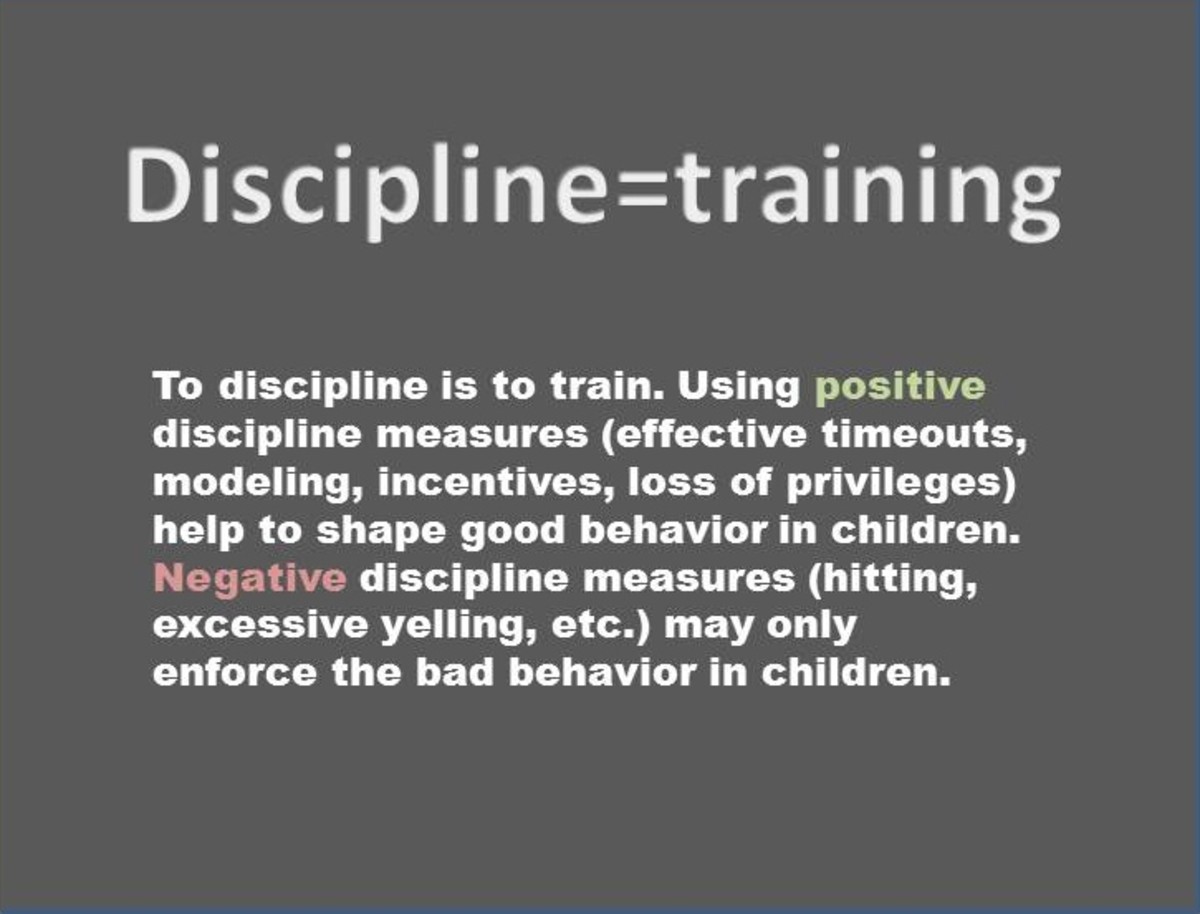The 10 Types of Parents-ULTRAMODERN PARENTS, Part 1/5

ULTRAMODERN PARENTS



What TYPE of Parent Are YOU
This hub is divided into 5 parts.
The family is considered to be the bulwark of society. It is the first and primary human environment. It is in families where children are taught to interact with either parents and siblings and finally with the outer society. Families also inculcate its members as to the norms of a particular society.
The family is one of our main social institutions. It is of tantamount importance in the development and nurturing of children from childhood to adulthood and beyond. It is ever omnipresent. When children reach adulthood, they are still attached to their family of origin while establishing families of their own. The influence of the families, either for good or ill, have an impact on us all of our lives.
The main component of family life are parents It is parents who assume a more active role in the family. They are the conveyors of information in the family structure. They are also represent history and the past to their children. They are the first and primary teachers to their children.
Parents can create a warm, nurturing familial environment. They can also create a cold, hostile familial environment. They are the main determinants in their children's lives. In other words, they have the power to either elevate their children to make them confident and successful in life or to denigrate their children to make them feel less than insignificant. Parents are entrusted with the responsibility to future generations.
There are many parents up for the job while there are others who fail abysmally. Parents have their own scripts in relation to raising their own children. Some parents come from loving and supportive environments which encourage their creativity, individuality, and intelligence. Other parents come from environments which could aptly be described as harsh and unsupportive where their uniqueness as children was constantly crushed and devalued. Parents do not raise their children with a blank slate. Their early familial script is highly influential as to how they raise their own children.
There are different types of parents as there are people in the world. There is no one standard parenting style. What suits one family can be sometimes disastrous for another family. Each parent must do what ultimately suits him/her and the child/children in question as long as it respectful and nurturing of the latter.
Some psychologists maintain that there are 4 basic parenting styles-indulgent, authoritative, authoritarian, and disengaged. Other psychologists insist that there are only 3 parenting styles-permissive, authoritative, and authoritarian. Each group of psychologists have their own understanding as to what are the main parenting typologies.
Of course, there are more subcategories and variations of these typologies as there are parents. These established parenting styles are just prototypes, nothing more, nothing less. I would like to broaden these traditional parenting categories with my own synopsis.
I would like to suggest that there are 9 parenting styles They are as follows: (1) the universalistic/evolutionary parent, (2) the modernistic/progressive parent, (3) the rational/perceptive parent, (4) the democratic/interactive parent, (5) the establishmentarian/traditional parent, (6) the ultraconservative/ retrogressive parent, (7) the unbending/autarchist parent, (8) the harsh/critical parent, (9) the soul devouring/destructive parent, and (10) the uninvolved/neglectful parent.
I. ULTRAMODERN PARENTS
(1) The Universalistic/Evolutionary Parent-Universalistic/evolutionary parents believe that their children are soul entities, possessing their unique personalities and lifepaths. They believe that children have their respective emotional, mental, and psychological imprints from birth. Children, in their estimation, are not blank slates as is commonly believed. They vehemently contest the typical parent-child relationship with the parent being superior to that of the child. They are of the opinion that such roles are oftentimes oppressive to children and totally out of sync in this postmodern, millennial age.
Universalistic/evolutionary parents know that children can teach them valuable life lessons. They feel that parents should interact with their children to allow them to maximize their unique life mission. They believe that children are to pursue their individual script. They are just here to gently guide and impart the prerequisite information to assist them on their quest.
Universalistic/evolutionary parents maintain that children are happiest and most fulfilled when they follow their innate destiny. The worst thing a parent can do in their eyes is to force children to conform to a lifeplan that is contrary to the latter's particular interests and desires. They contend that children have innate talents and proclivities which are to be encouraged, nurtured, and respected. To interfere with these and mandate that children live a preordained script according to parental wishes is akin to psychic abuse of the worst kind.
Universalistic/evolutionary parents do not believe that in the concept of different an unusual. To them, difference and unusualness are part of the universal plan. In their contention, there is nothing wrong whatsoever to diverge from the so-called norm and expected. In fact, they detest the concept of normalcy and conformity, believing that this concept prevents humankind from further intellectual, psychological, and spiritual development/evolvement as a species. They further argue that difference and diversity is normal and that conformity is aberrant and deviant.Universalistic/evolutionary parents impart this philosophy to their children. These are the children who can wear shock green Mohawk hair and outrageous clothing with fearing parental ridicule. To such parents, these children are expressing themselves- so what is the big deal. These parents value the differences in their children instead of being threatened and attempting to squash such differences. They honor their children and refuse to view them as replicas of themselves. Their motto is to let them BE as long as they are not harming and/or being disrespectful to themselves and others. They view conformity is being numbing and suffocating, , adding that conformity with the purpose of having homogeneous familial standards is totally detrimental to the evolvement of their children's human and divine potential.
Universalistic/evolutionary parents affirm that their children are spiritual beings in human form. They teach their children to value their divinity and that of others. They refuse to adhere to artificial and societal constructs whether it is class, cultural, ethnic, racial, and/or other artificially imposed constructs. To them, every person is a representative of the divine, whether it is God or a Higher Universal Force. They believe that differences are just human constructs and do not exist at the higher levels of consciousness, be it human or spiritual.
Universalistic/evolutionary parents consider parenthood as a continuing learning experience. Parenting is a spiritual experience to them. Children are the conveyors as well as the recipients of knowledge. Children under such parentage are taught to respect and fully embrace their uniqueness and are not pressured to conform to what is considered to be the idea prototype whether it is intelligence, career, and/or talent. Children are allowed to pursue their individual dreams and goals whatever they may be.
(2) The Modernistic/Progressive Parent-Modernistic/progressive parents believe that their children are their own persons with individual rights. They do not subscribe to the premise that children are blank automatons with the purpose of being molded to parental expectations. To them, this premise does not serve any educational purpose at all. They maintain that children are intelligent and thinking beings.
Modernistic/progressive parents assert that children ought to be encouraged to express and assert themselves, whether it is in family or in the outer society. They contend that this is how children learn to be independent and to have autonomy in their lives. They further believe that children should be encouraged to express themselves and to assert themselves in family situations. They contend that this is how children learn to be independent and to gain autonomy in their lives. They believe that the best children are independent children who can think critically and question facts before believing and incorporating them in their lives.
Modernistic/progressive parents contend that the worst thing a child could be is blindly obedient. They maintain that blindly obedient children will never learn to be intelligent and critical thinkers. They are of the school that blind obedience is the antithesis to being a thinking and highly individualized person. They further maintain that such children will be nothing but conformist followers. They are of the opinion that children who are taught to be independent thinkers and to question authority tend to be the innovators and leaders for tomorrow.
Modernistic/progressive parents believe that independent thinking children tend to be more creative and intelligent in addition to be better adjusted and more mature. They believe that children will be more intelligent and mature if parents consider their children to be thinking human beings instead of just mere receptacles. Nothing is more enrichening and satisfying to these parents than to have a thinking, questioning child.
Modernistic/progressive parents affirm the positives of having their children to be participators regarding decision making. They maintain that in order to be an autonomous person, children must be encouraged to actively decide and think things through for themselves. They believe that children who are strongly proactive and participatory in their lives tend to be happier and better adjusted. They further contend that such children feel as if they are important members of their respective families. They maintain that such children ultimately become more responsible, self-directed, and self-motivated.
Modernistic/progressive parents also do not subscribe to the theory and mandate of utter conformity. They believe that nothings destroys a child's sense of individuality, independence, and intelligence than to be forced to conform to societal conventions. They maintain there must certain societal rules for its betterment and containment, they maintain that it is best if people be inner, instead of outwardly directed. They teach their children the importance of being inner directed regarding the principles of right and wrong.
Modernistic/progressive parents are of the thought just because the majority consensus decree that something is right, good, and/or acceptable, it does not make it so. They maintain that what is deemed correct in a majority of cases is not preordained but it is because those who assumed more dominant and powerful roles declared it so. They assert that might does not always means right. They aptly practice this principle as parents.
Modernistic/progressive parents teach their children to look beyond the established societal paradigms and to do what ultimately benefit them. They further contend that utter conformity diminishes their children's innate sense of full humanness. They view conformity to be emotionally, mentally, and psychological restrictive as conformity only advocated a limited paradigm and no human being should be limited.
Modernistic/progressive parents also see a more sinister side to conformity-giving one's power to other people, especially those who are deemed more authoritative. These parents want their children to own their lives and to do so they have to value, maintain, and assert their individuality. They staunchly maintain if it is necessary to do this, one should go against the societal consensus. They believe that blind obedience and utter conformity to the antithesis of a happy, well-adjusted, independent thinking child.
Modernistic/progressive parents view parenting as teaching their children to be the thinking and independent people they are meant to be. Children are taught of as highly cognitive and independent people early in life. They are encouraged to be inner-directed and to take responsibility for their lives. They are also inculcated to be always be critical thinkers and to question authority. In essence, they are told to see beyond the societal constructs and parameters and do what they believe to be right and just.

© 2013 Grace Marguerite Williams





